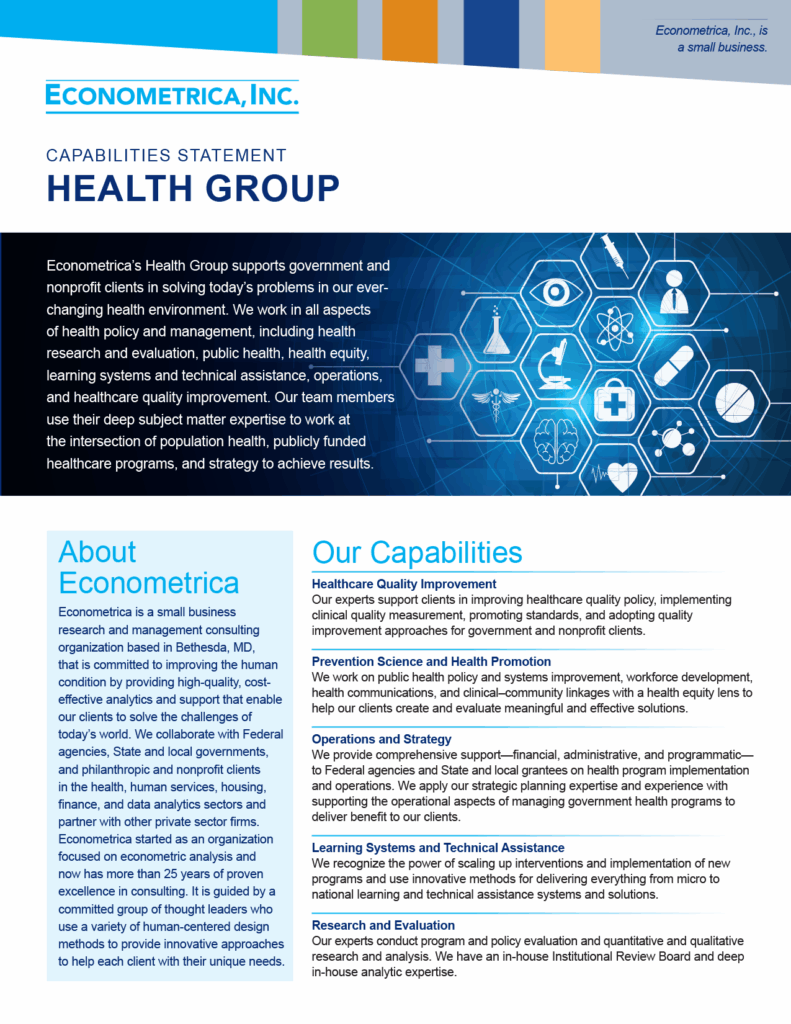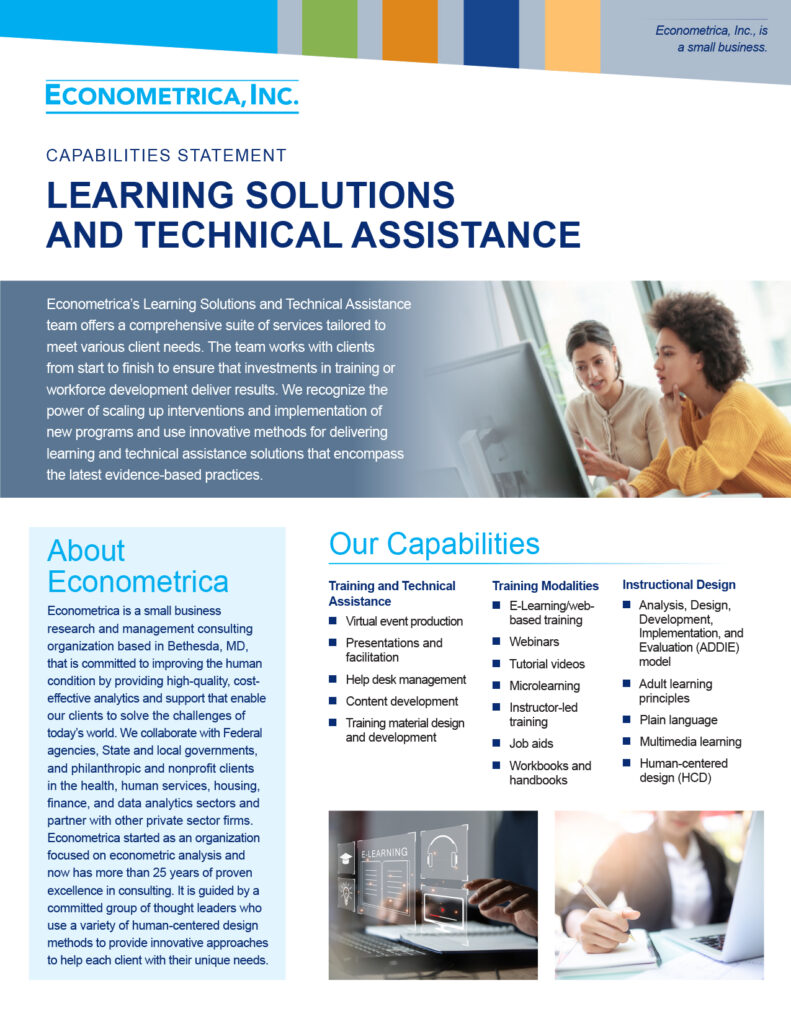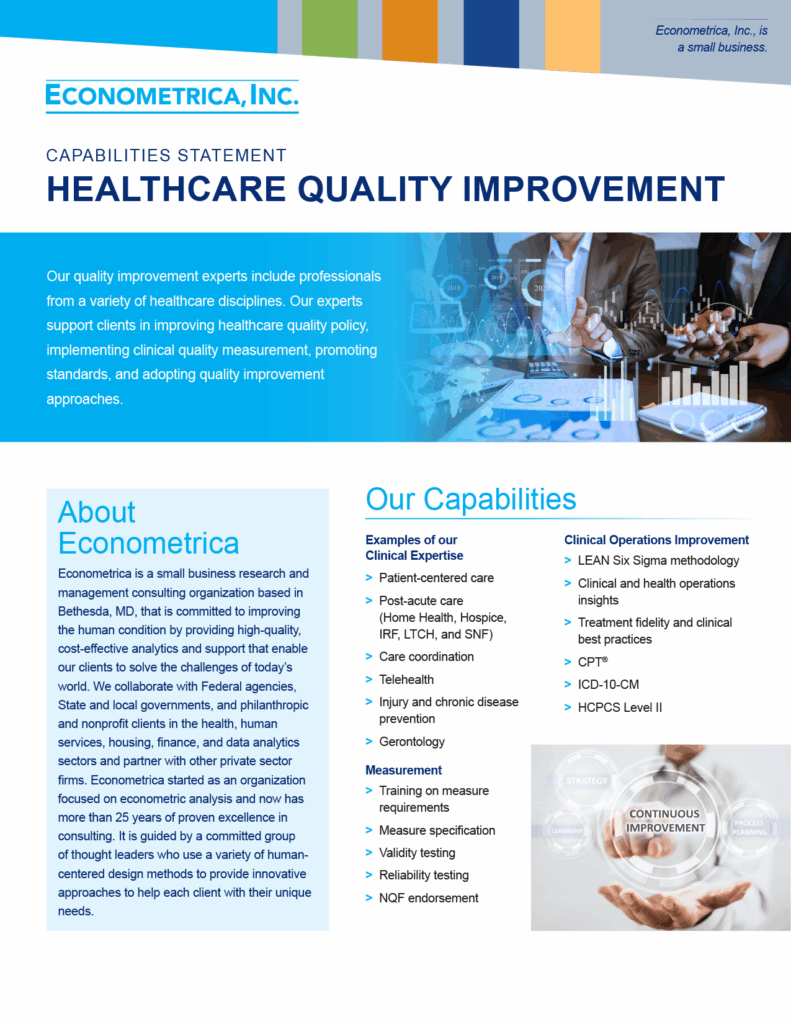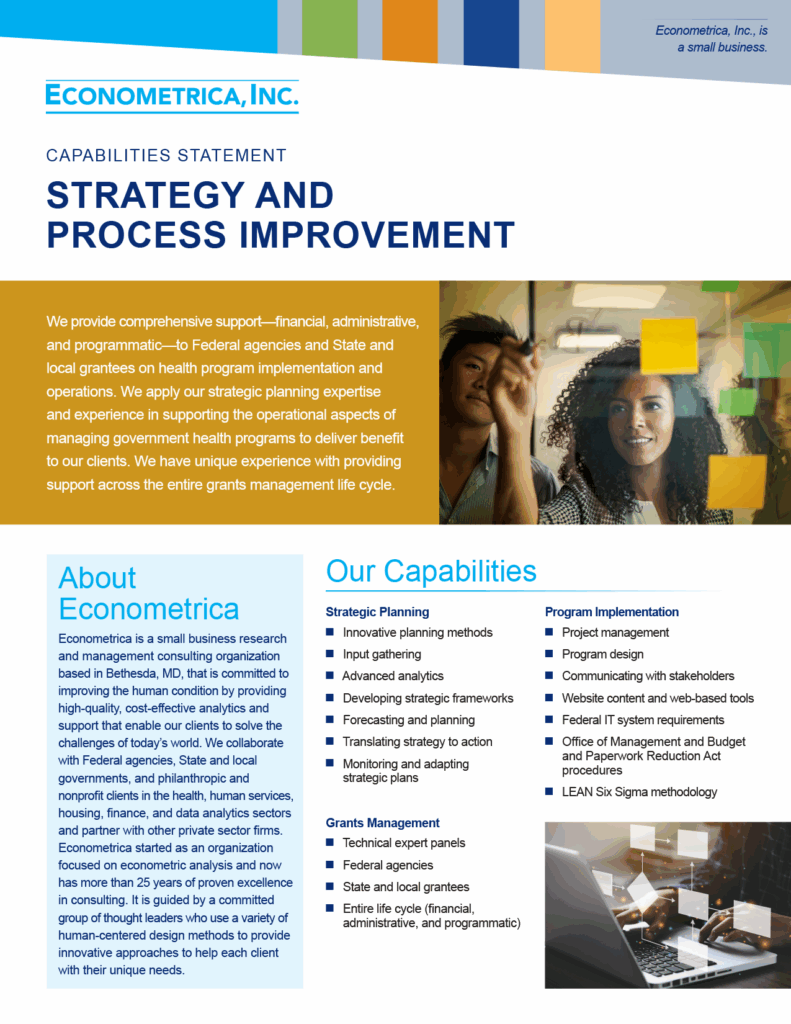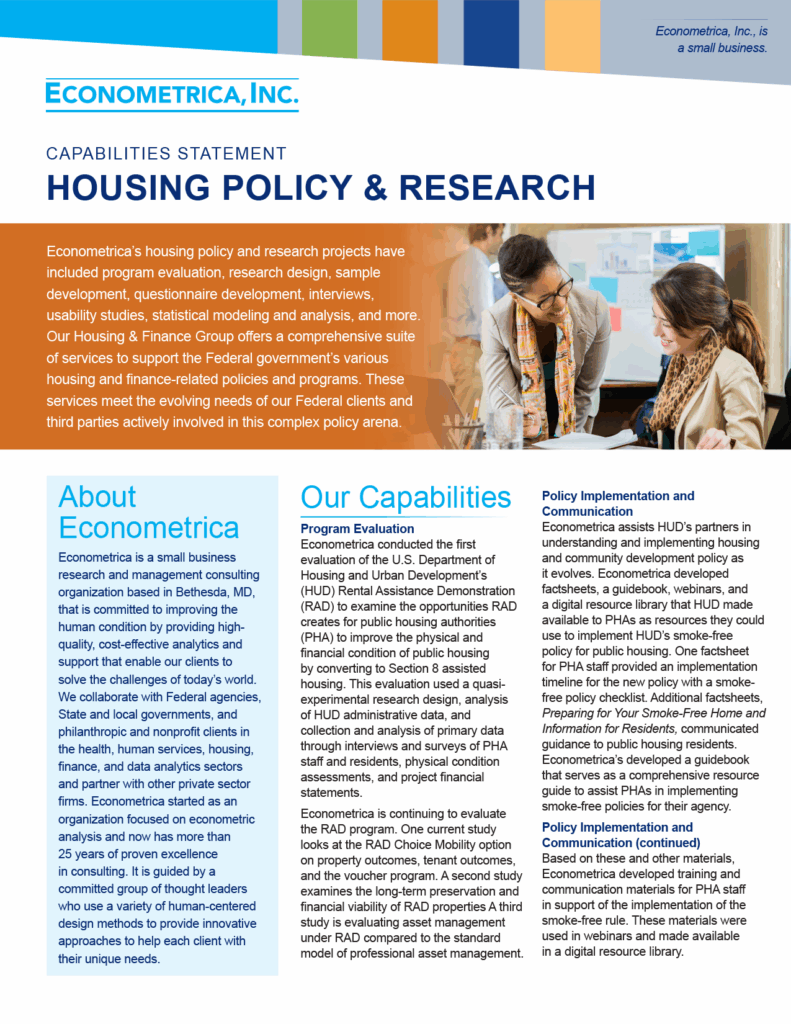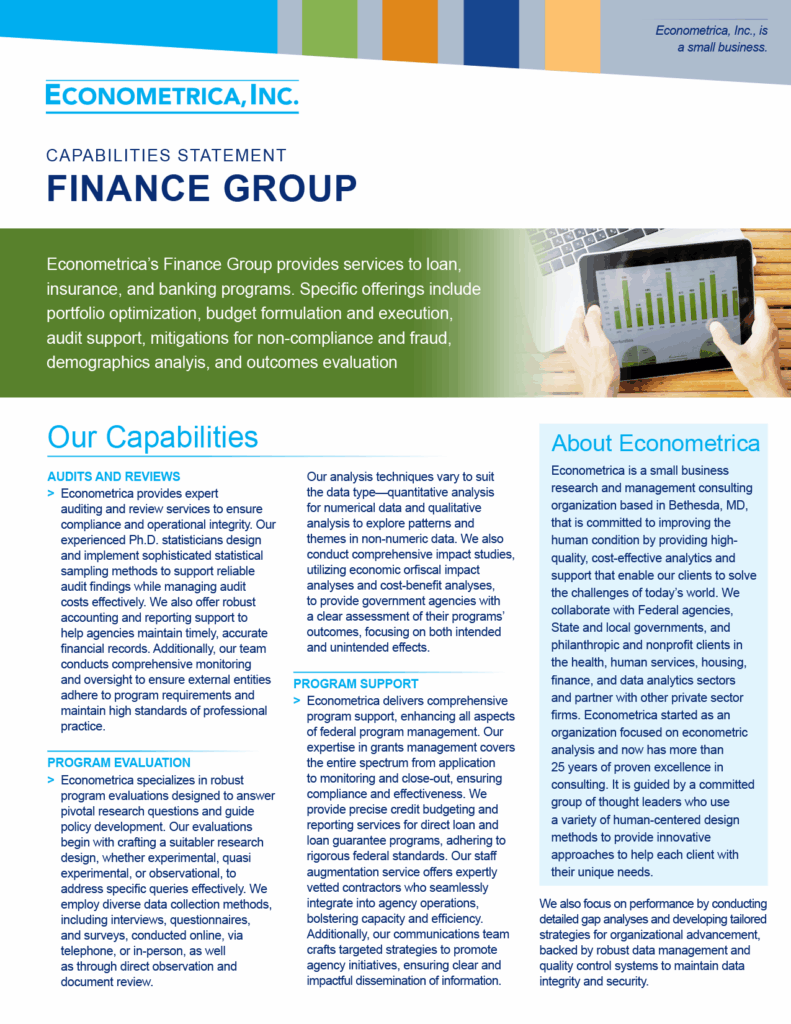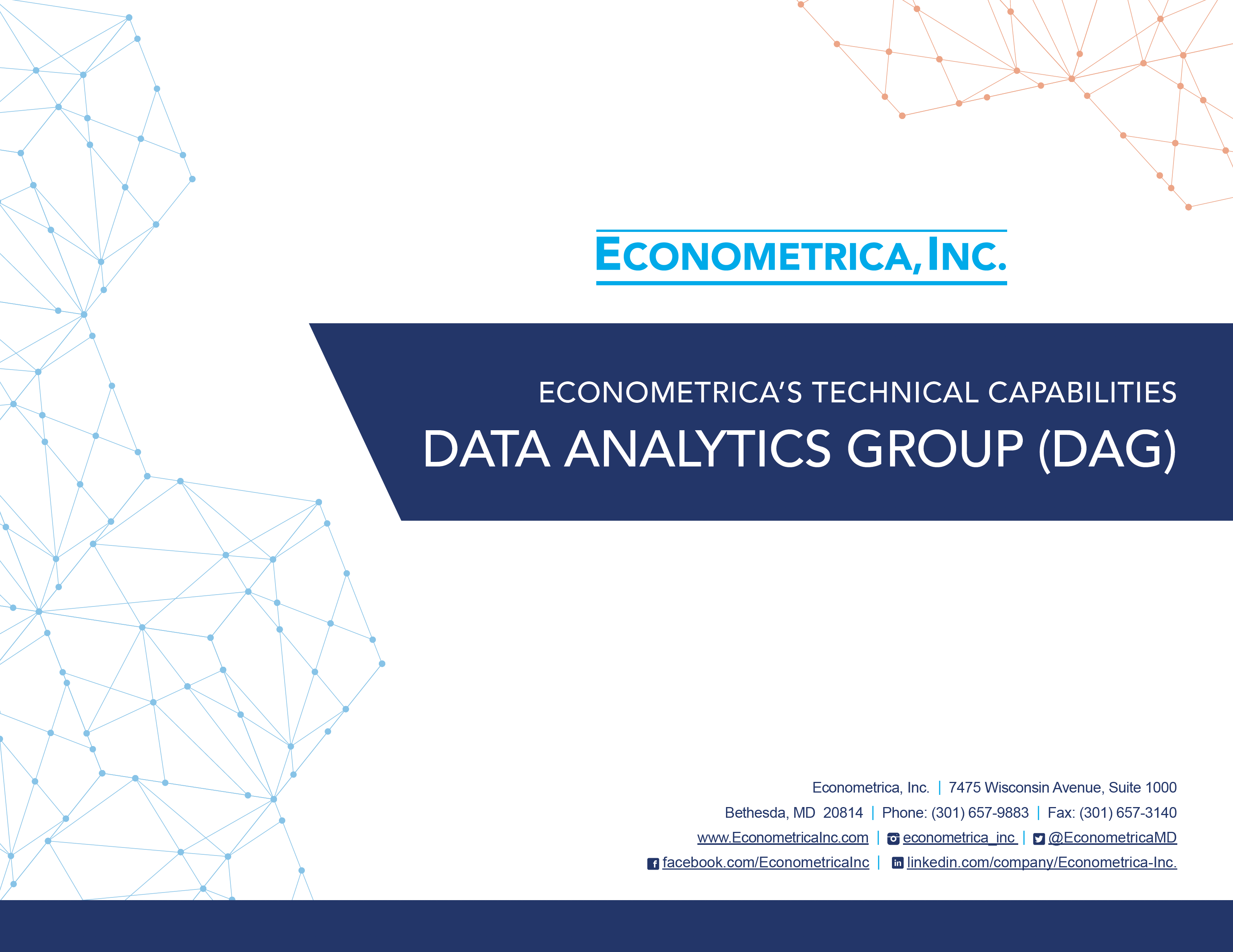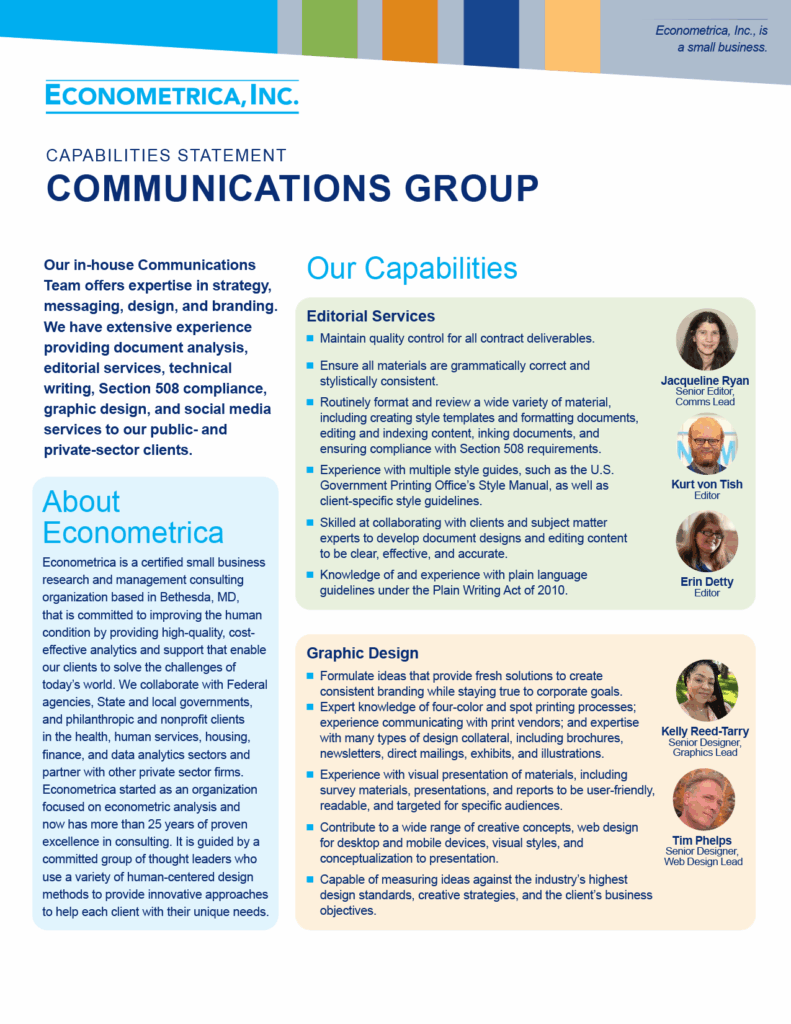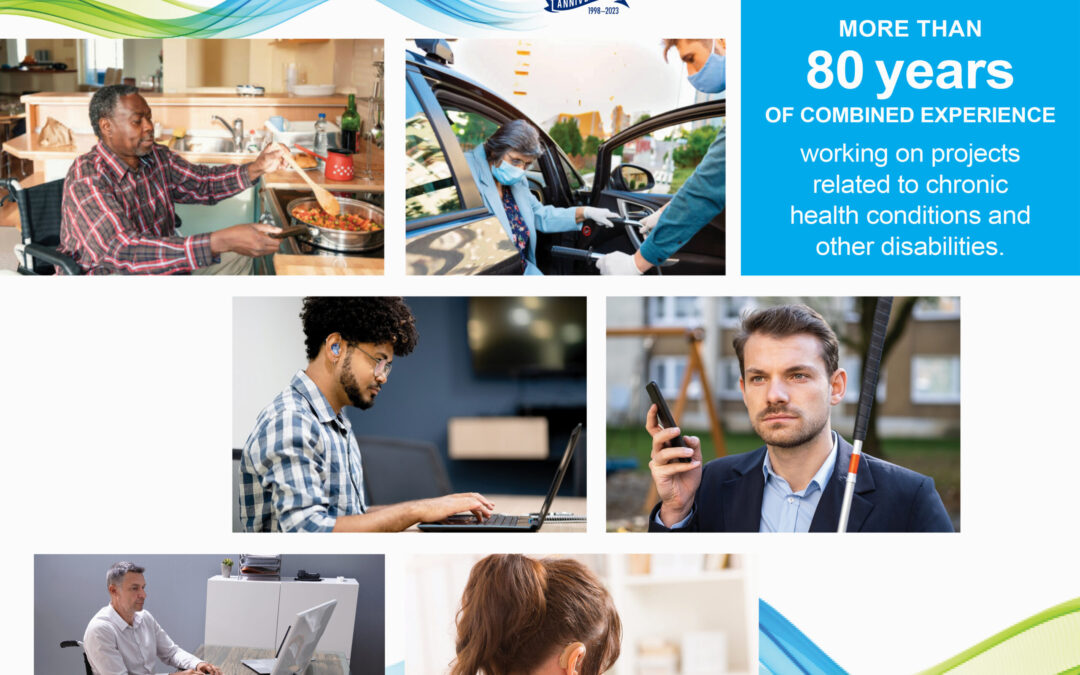
Econometrica’s Experience and Capabilities Related to Serving People With Disabilities
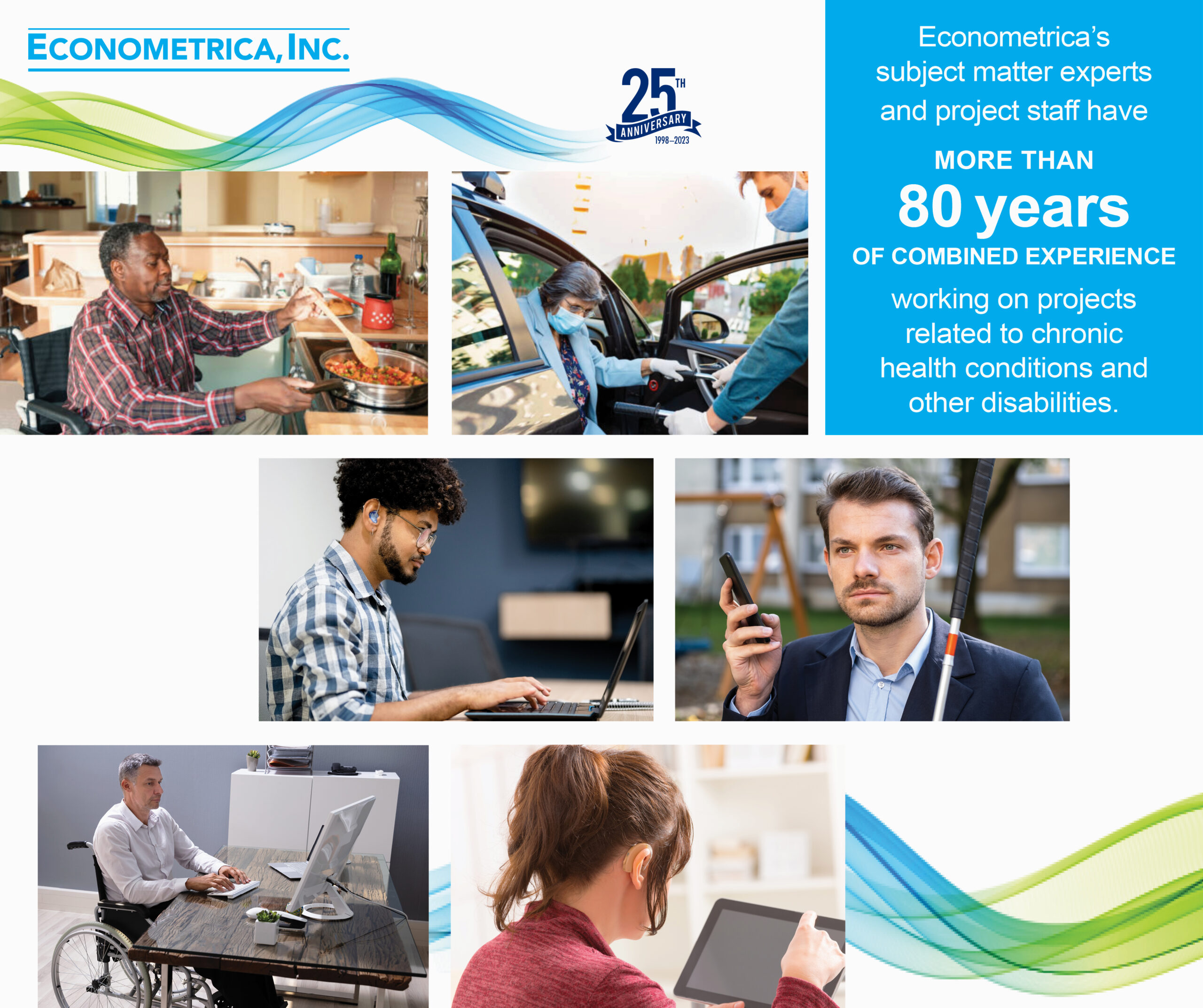
Projects Involving People With Disabilities
Econometrica’s subject matter experts and project staff have more than 80 years of combined experience working on projects related to chronic health conditions and disabilities.
Post-Acute Care (PAC) Training, Centers for Medicare & Medicaid Services (CMS)
For over 7 years, Econometrica has developed and provided training to PAC providers on interviewing and assessing patients with regard to their disabilities and other medical conditions. PAC includes rehabilitation and palliative care for patients who have had treatment for a short-term medical condition, such as a severe injury, short-term illness, or surgery, and require continued medical care and assistance with daily living activities. We have created live in-person trainings and remote webinars, asynchronous e-learning courses, training videos, and associated job aids and documentation. We have trained more than 250,000 PAC medical providers across five care settings.
State Data Resource Center, CMS
By analyzing, organizing, and publishing Medicare data for States, Econometrica’s work on the State Data Resource Center project helped address care fragmentation issues for people who are dually eligible for Medicaid and Medicare. Econometrica conducted research, presented webinars, authored white papers, and developed a data portal to make these important data more accessible. People who are dually eligible for Medicaid and Medicare—including those who receive long-term care services and support for disabilities (49 percent of the dually eligible population) and those who have multiple chronic conditions (60 percent)—experience high rates of chronic illness.1 Econometrica’s work with Medicaid and Medicare data helped provide insight into the needs of people with disabilities.
Programs of All-Inclusive Care for the Elderly (PACE), CMS
PACE provides home- and community-based services for Medicaid and Medicare beneficiaries who want to stay at home and need a nursing home level of care to do so. PACE participants have multiple disabilities and need assistance with daily living activities such as dressing, bathing, transferring, toileting, eating, and walking. PACE participants have on average six chronic medical conditions, and 90 percent are dually eligible for both Medicaid and Medicare.2 Econometrica conducted 31 site visits to PACE organizations and interviewed PACE staff, caregivers, and participants to better understand the type of care received by PACE participants and how to systematically assess the quality of care delivered through the program. Our team conducted 15 technical expert panel meetings and hosted discussions with experts in the field to analyze existing quality measures and propose new ones, three of which are now endorsed by the National Quality Forum. Through this research, we learned more about the intricate needs of medically fragile Medicare and Medicaid beneficiaries, their family caregivers, and those who provide essential healthcare services to them.
1 CMS. (2020, March). People dually eligible for Medicare and Medicaid [factsheet]. Retrieved from https://www.cms.gov/Medicare-Medicaid-Coordination/ Medicare-and-Medicaid-Coordination/Medicare-Medicaid-Coordination-Office/Downloads/MMCO_Factsheet.pdf.
2 National PACE Association. (2020, March). PACE by the numbers. Retrieved from https://www.npaonline.org/sites/default/files/images/infographic_images/ pace_infographic_update_side1_may2021.pdf.
Accessible Training
Econometrica has specific expertise in creating trainings that are fully accessible to all participants. We believe not just in fulfilling the basic obligations of Federal accessibility laws, but also in maintaining the spirit of those laws, making information access for people with disabilities as close as possible to the experience of those without disabilities. We have dedicated Learning Solutions and Section 508 Compliance teams that provide expertise, tools, and procedures from the beginning of each project to ensure accessibility prior to public release. Since we plan for accessibility from the start, we provide our clients with realistic expectations and avoid costly rework.
As more communication moves online, Econometrica excels in providing online training that is accessible to people with disabilities in both instructor-led live sessions and asynchronous, self-paced e-learning courses.
Instructor-Led Live Trainings In-Person Training
Econometrica ensures that the in-person trainings we conduct are accessible. We provide closed captioning during the event and ensure that all facilities are compliant with the Americans with Disabilities Act. Additionally, we simulcast our trainings so that those who have barriers to travel can participate online. We utilize technology that allows remote attendees to participate in any participant interactions, such as answering knowledge check questions, submitting questions to presenters, and evaluating the training.
Webinars
Econometrica designs and facilitates engaging webinars for audiences ranging in size from more than 1,000 to 35. Our webinars include both live captions during the presentation and edited captions in the recordings to ensure all acronyms and technical terms are correct for those with hearing disabilities. All supporting documentation, such as slide decks and job aids, are made Section 508 compliant prior to release.
Asynchronous E-Learning
Econometrica’s instructional designers make deliberate e-learning decisions with learners with disabilities in mind, such as minimizing the use of audio narration so as not to conflict with screen readers and including alternate text for figures and images. Econometrica develops courses using Articulate Rise, which has more built-in accessibility advantages than traditional, slide-based e-learning platforms:
-
- The web-based platform allows updates to courses to be made and pushed live immediately, so learners with disabilities do not have to wait weeks for an accessible version of the updated information.
- Content automatically adjusts to fit the screen of different devices (such as a computer, tablet, or phone), so learners with disabilities can use any device with their accessibility software.
- Interactions that increase learner engagement, such as sorting, matching, and flashcards, are all Section 508 compliant in Articulate Rise and allow for keyboard navigation, unlike other platforms.
Econometrica has spent years understanding the needs of people with disabilities. We are passionate about inclusively designing communications and trainings for all. Please reach out to us to discuss how we can bring our expertise to your next contract or event.
Additional Resource
Need experience and capabilities related to serving people with disabilities? Contact Us.
Our experts are here to help you. For a quick, direct response, visit us online and email a member of our executive staff in your preferred specialty.

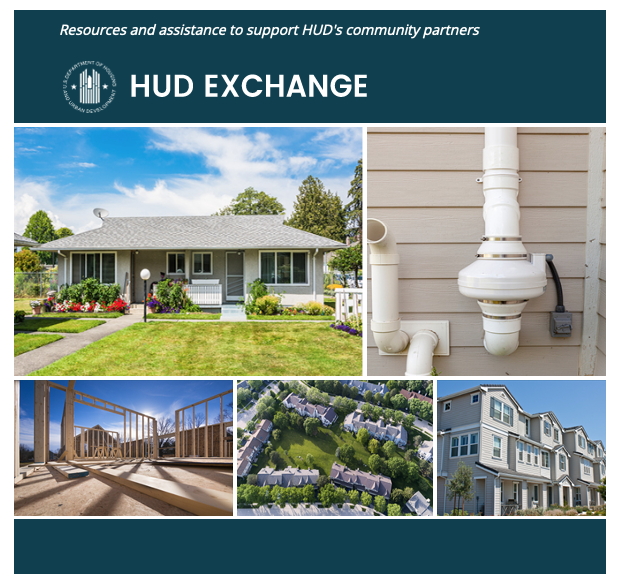
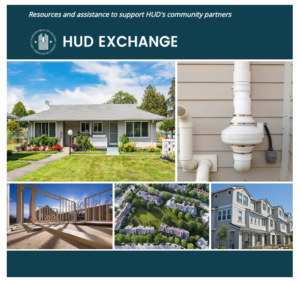 The U.S. Department of Housing and Urban Development (HUD) recently published fresh guidance related to radon in housing on the HUD Exchange site.
The U.S. Department of Housing and Urban Development (HUD) recently published fresh guidance related to radon in housing on the HUD Exchange site.
